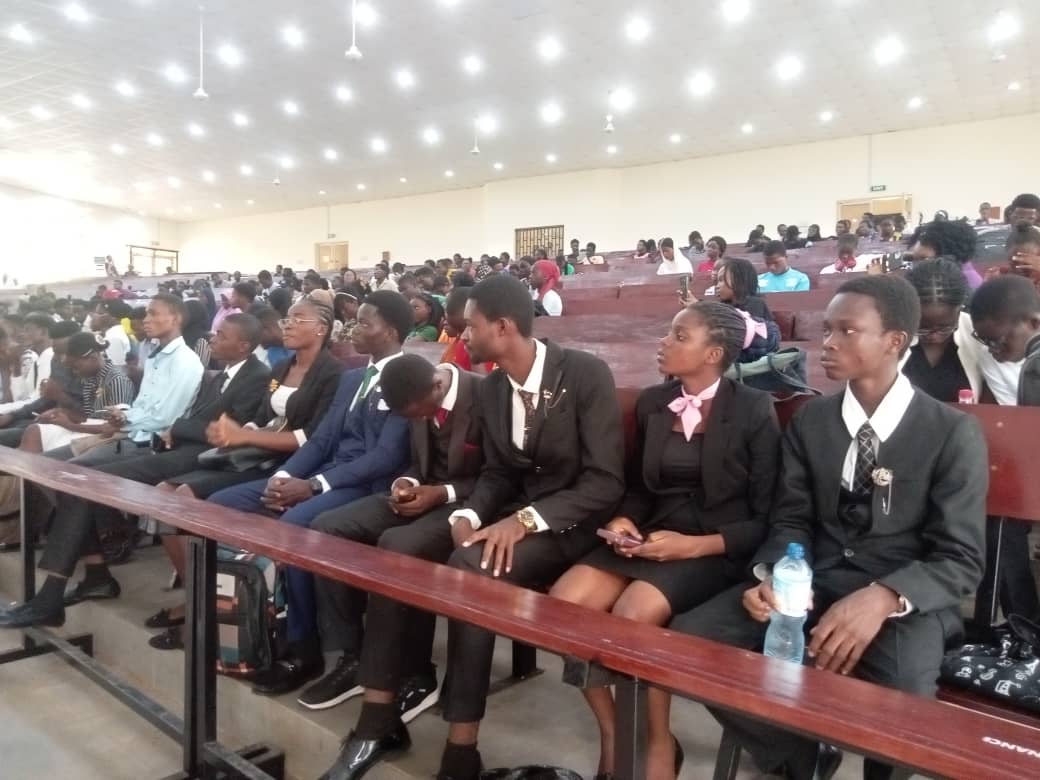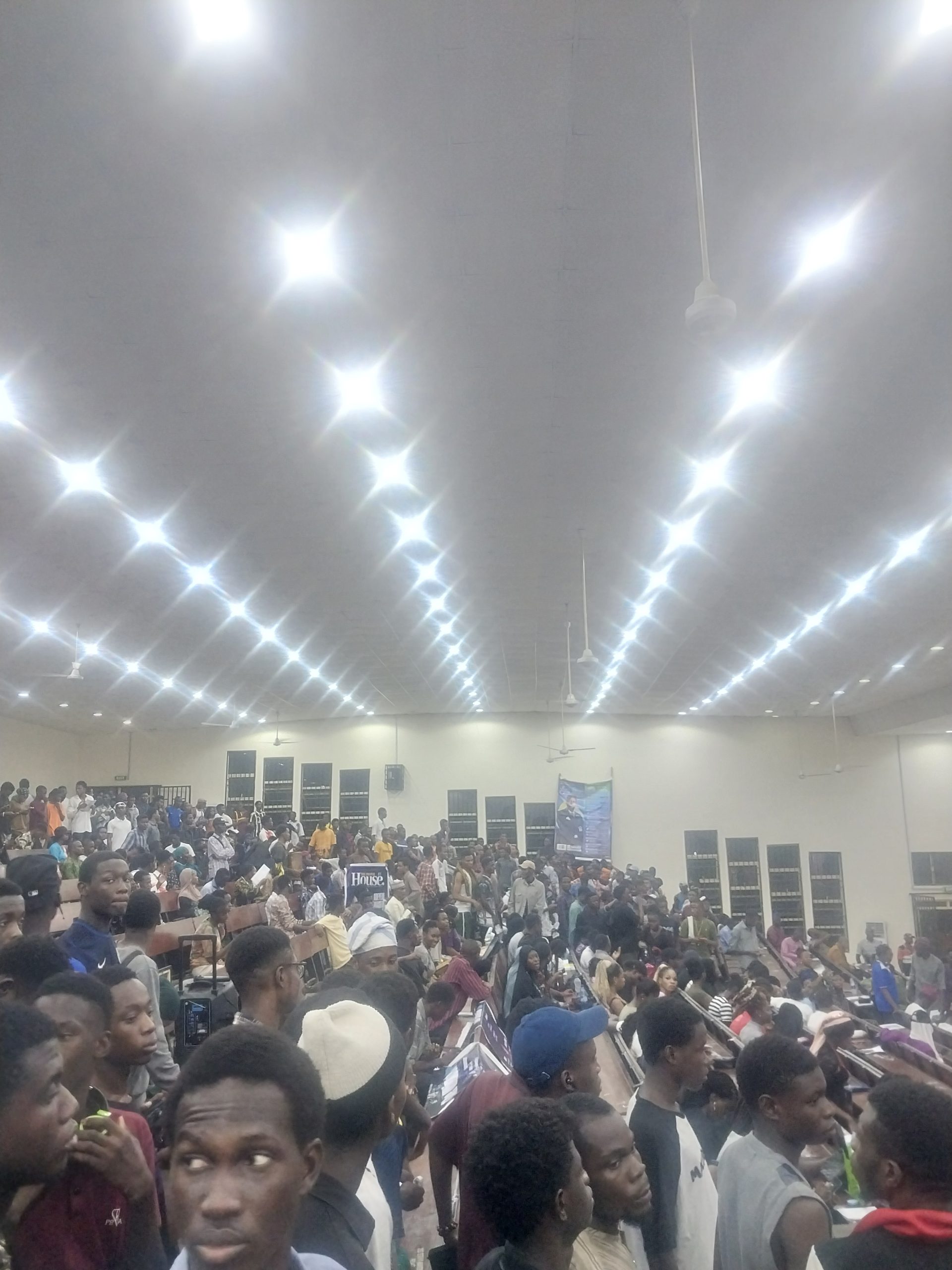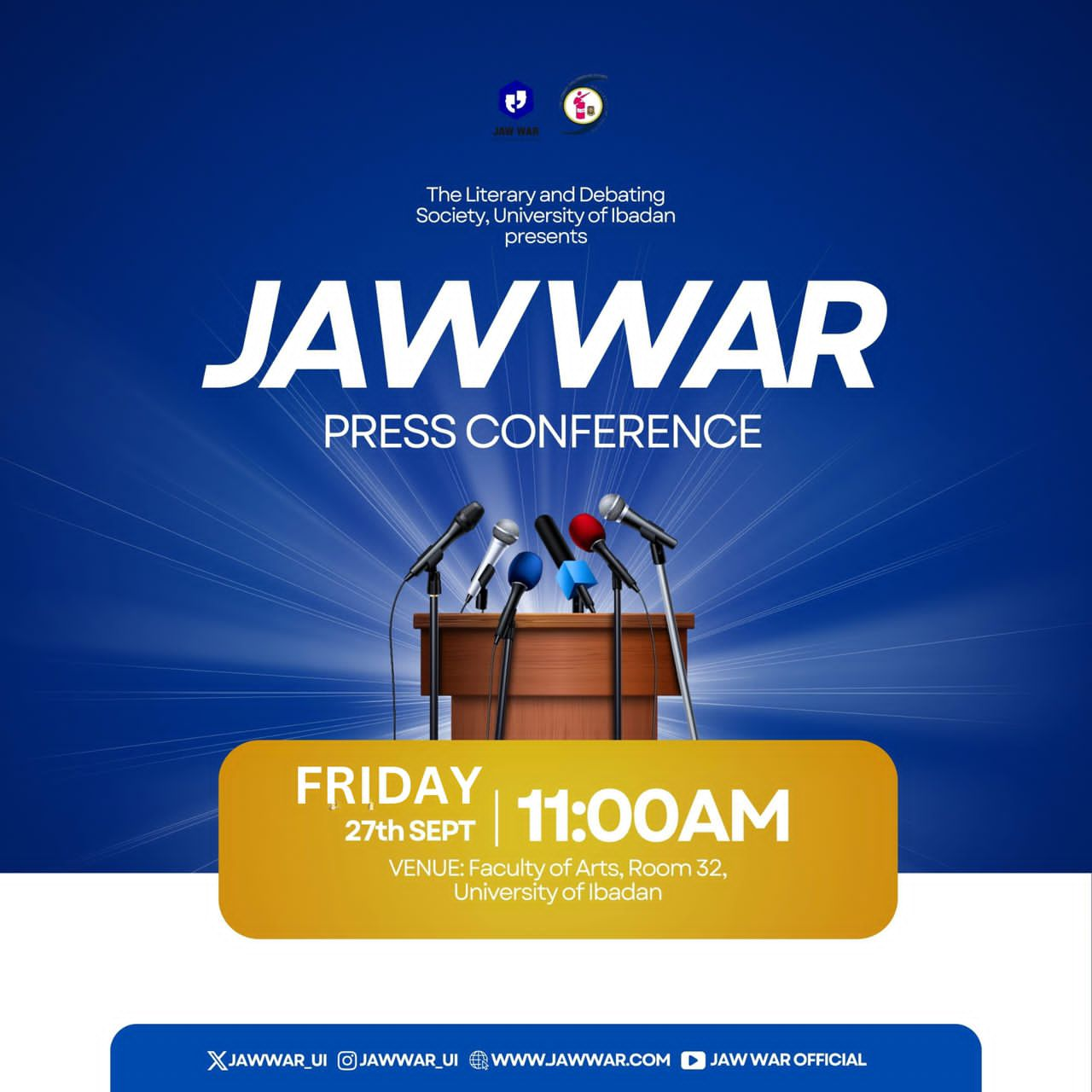Zik, Indy Win at UI’ SU Freshers’ Inter-Hall Oratory and Spelling Bee

Uwokhori Faith of the Nnamdi Azikwe Hall and Demilade Giwa-Balogun of the Great Independence Hall emerged winners of the UI’ SU Inter-Hall Oratory Contest and Spelling Bee, respectively, held on Tuesday, the 7th of July, 2024, at the New Faculty of Technology Lecture Theatre.
Both events, along with an Inter-Faculty Quiz competition, were organised as part of Day 2 of the SU Freshers’ Week, themed ‘Lebadu Sepre Lemande’.
The Oratory Contest featured participants from 8 Halls, with the Lord Tedder Hall failing to send a representative. It was initially scheduled for 10 AM according to the notice sent out by The Literary and Debating Society but began around 12:10 PM. Representatives from the eight halls spoke for three minutes on the topic, “Unlearning my National Anthem”. At the end of the Contest, Sultan Bello Hall came third (79.8%), Great Independence Hall, second (83%), and Nnamdi Azikwe Hall, first (86%). The rest of the line-up was as follows, Queen Idia Hall (66.3%), Obafemi Awolowo Hall (63%), Reverend Israel Oludotun Ransome Kuti Hall (58.3%), Queen Elizabeth II Hall (54.2%), and Kenneth Mellanby Hall. The Contest was judged by Adigun Mary, President of the Faculty of Arts Literary and Debating Society, UI Public speaking legend, Michael Barnabas, and Olanrewaju Oyedijo, President of the Faculty of Renewable Natural Resources Literary and Debating Society.
For the Inter-Hall Spelling Bee, there were two stages; a preliminary stage and the final. In the preliminary stage, the nine participating halls were grouped into three, competing in separate rounds. Contestants were asked to spell from a word list which was provided prior. At the end of this round, Queens Hall (grouped with Tedder and Kuti), Mellanby Hall (grouped with Bello and Awo), and Indy Hall (grouped with Idia and Zik) emerged. They then proceeded to a tie-breaker round which was won by the representative of Indy Hall with Mellanby emerging 2nd and Queens, 3rd.
In between both, there was a panel session involving various student leaders. This session covered academics and the various organisations available to Freshers on campus.
Speaking with the Press, Bolarinwa Israel (Indy), first runner-up in the Oratory Contest said, “There was a kind of internal competition before I was selected and it was by no means a small feat and even after that, there were times we had sleepless nights trying to tick all the boxes and the times I had to do an individual training with the executives. This win is not just for me, the executives gave their all and I’m marveled at the amount of impact they had on me in such a short moment. It’s been a blissful experience“.
Eriomala John




